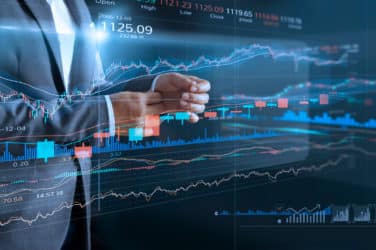

Marina Severinovsky, head of sustainability, North America at Schroders, said environmental, social and governance strategies had attracted flows during rising markets but the managers need to step up and explain the value of long-term ESG as performance has faltered.
Severinovsky told Markets Media that sustainable investing is at a critical juncture as investors face rising interest rates, higher inflation, increasing energy markets and geopolitical tensions.
“In the last 10 years performance has been good and that covers all manner of sins,” she added.
Performance had attracted inflows which had $28 trillion in global assets managed under ESG principles at the end of last year according to Schroders. Assets were 21.9% higher than in 2020 and 415% up from 2016.
“ESG-friendly also happens to be large-cap growth, so you end with a confluence of those companies doing really well for like a decade,” Severinovsky said. “Now we are in a different paradigm.”
In addition, regulators have been focused on potential greenwashing and made it clear that asset managers need to be more clear with clients on the impact of their ESG strategies.
Severinovsky said managers need to have serious conversations with their clients about short-term downturns in performance which can be challenging.
“However, if you believe that over the next 30 years the world is going to be in a decarbonisation phase then it is going to be really important to invest in companies that understand this and are planning for that future,” she added. “As an industry we have to rise to the occasion, especially when performance is not a tailwind.”
She believes it is important that investors know what they are buying, likely performance in different market environments and the time horizon over which to assess value creation.
For example, Schroders has outperformed in energy investments over the last year and a half. The asset manager looks for companies in the sector who have made a Net Zero commitment, are making investments to diversify their energy mix and Schroders will assess measures such as avoided emissions.
“The company may be very carbon-intensive today but if it is making very clear strides towards decarbonisation, then we want to fund that transition,” she added.
Institutional Investor Study
Schroders sixth annual Institutional Investor Study found that the majority, 65%, of US investors still find it somewhat or very challenging to invest sustainably, which is similar to the last two years. In addition more than half, 58%, of US institutional investors also said performance concerns were a barrier for investing sustainably, higher than 53% of their global counterparts.
Nearly three quarters of respondents, 68%, also said access to more quantitative evidence would encourage sustainable investing.
Funds which contribute to benefits for people and the planet are rapidly increasing in popularity, according to our research. Read the article: https://t.co/Cvbc6C7qDt#insights #sustainability #activeownership pic.twitter.com/Dra9lcRMcQ
— Schroders (@Schroders) July 13, 2022
Severinovsky said: “It is very clear that investors are telling us, in no uncertain terms, that they need more comparable and clear information and transparent categories.”
The fund manager commissioned CoreData to survey 770 institutional investors with $27.5 trillion in assets to gauge their pulse on the biggest global investment trends for its sixth annual Institutional Investor Study.
“At Schroders, we have always set a high bar with our internal definitions, and with ensuring that we can provide evidence and robust reporting on our efforts, via our proprietary tools like SustainEx for impact measurement,” said Severinovsky. “We welcome the next stage of the ESG investing lifecycle where industry consistency leads to deeper investor understanding.”
The US Securities and Exchange Commission has proposed mandatory climate-related disclosures and Severinovsky anticipates that human capital disclosures will be next. “As investors we don’t sit around and wait for regulators to mandate this data as we are asking for it anyway,” she added.
Schroders has developed proprietary climate-related data and models and is developing human capital metrics.
“We are working on a human capital dashboard,” Severinovsky said. “It is tough to get diversity and inclusion data below the executive or board level and much of the data is self-reported.”







